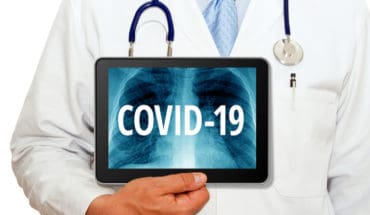Our message this World Heart Rhythm Week (4-10 June) is Take Fainting to Heart – there is no such thing as a simple faint. Faints are all too often disregarded however they are sometimes the only the symptom of an underlying cause and one such cause could be a potentially fatal arrhythmia (irregular heart rhythm). Doctors often tell patients they have a ‘simple faint’ to reassure however we think this is misleading and very worrying for the patient.
One in every two of us will faint at some point in our lives and it can be down to dehydration, not eating enough breakfast, low blood sugar, or bradycardia (slow heart rhythm), particularly in older people. Every faint can have serious consequences – just the fall can lead to broken bones, and other accidental injuries.
But if there is no explanation and someone has a history of unexplained fainting, there is a chance that it could be down to an arrhythmia. Sudden cardiac death caused by a type of arrhythmia called ventricular fibrillation (VF) or ventricular tachycardia (VT), kills more people than lung cancer, breast cancer and AIDS combined.
NICE already recommends that someone who has an unexplained loss of consciousness should undergo a 12-lead ECG which should be read by a heart rhythm specialist (electrophysiologist). This guidance was published in 2009. However, we are now calling upon NICE to update the guidelines, bearing in mind the evolution of technology including new diagnostic methods and digital ECGs.
We also want more Trusts to ensure that these guidelines are actually followed. We know of people who are fainting up to four times a day without an ECG diagnosis. They could have undiagnosed arrhythmia and be walking time bombs.
We also want more Trusts to ensure that these guidelines are actually followed. We know of people who are fainting up to four times a day without an ECG diagnosis. They could have undiagnosed arrhythmia and be walking time bombs.
Those people who are diagnosed with an arrhythmia after an ECG can have treatment and go on to lead independent lives. Frequent fainting caused by arrhythmia may well be one of the main reasons for so many broken hips, wrists and ankles in older people who can’t explain why they seemingly ‘tripped and fell’. Dealing with the issue at the heart of the problem could save the NHS millions of pounds in the long term, if we could only take fainting seriously now.
Remember – there is no such thing as a simple faint!
- Ceremony for leading Healthcare Pioneers - 8th June 2023
- DETECT, PROTECT, CORRECT, PERFECT - 8th June 2023
- Arrhythmia Alliance launches first SVT Awareness Day - 7th June 2023






